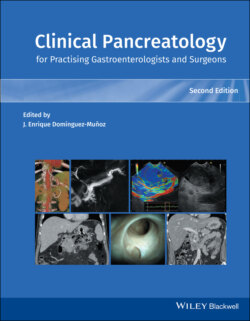Читать книгу Clinical Pancreatology for Practising Gastroenterologists and Surgeons - Группа авторов - Страница 76
Artificial Intelligence and Biomarkers: the Future?
ОглавлениеWhile an extensive number of cytokines, adipokines and chemokines have been tested, none are routinely available, and none outperform existing clinical scoring systems. The most notable cytokines are IL‐1β, IL‐6, TNF‐α, resistin, visfatin, angiopoietin‐2, and MCP‐1 (see Table 4.2). Table 4.2 is a list of the most promising biomarkers that have been tested for their predictive performance in AP patients, but it is not exhaustive as many other markers have been associated with AP severity [82,83]. In the future, combining biomarkers with clinical scoring systems can be examined to see if prediction performance can be enhanced.
Machine learning algorithms are increasingly tested to aid clinical decision‐making [84–87]. Similarly, in pancreatology, deep learning could be integrated into patients’ electronic medical records to build more accurate models that will continue to refine themselves automatically with time. For example, using machine learning models the risk of “under‐triaging” patients in the emergency room was significantly less than the human triage system [85]. Deep learning could also be employed to incorporate cytokine, chemokine, and adipokine data as well as clinical data to develop better prediction tools that clinicians can use.
